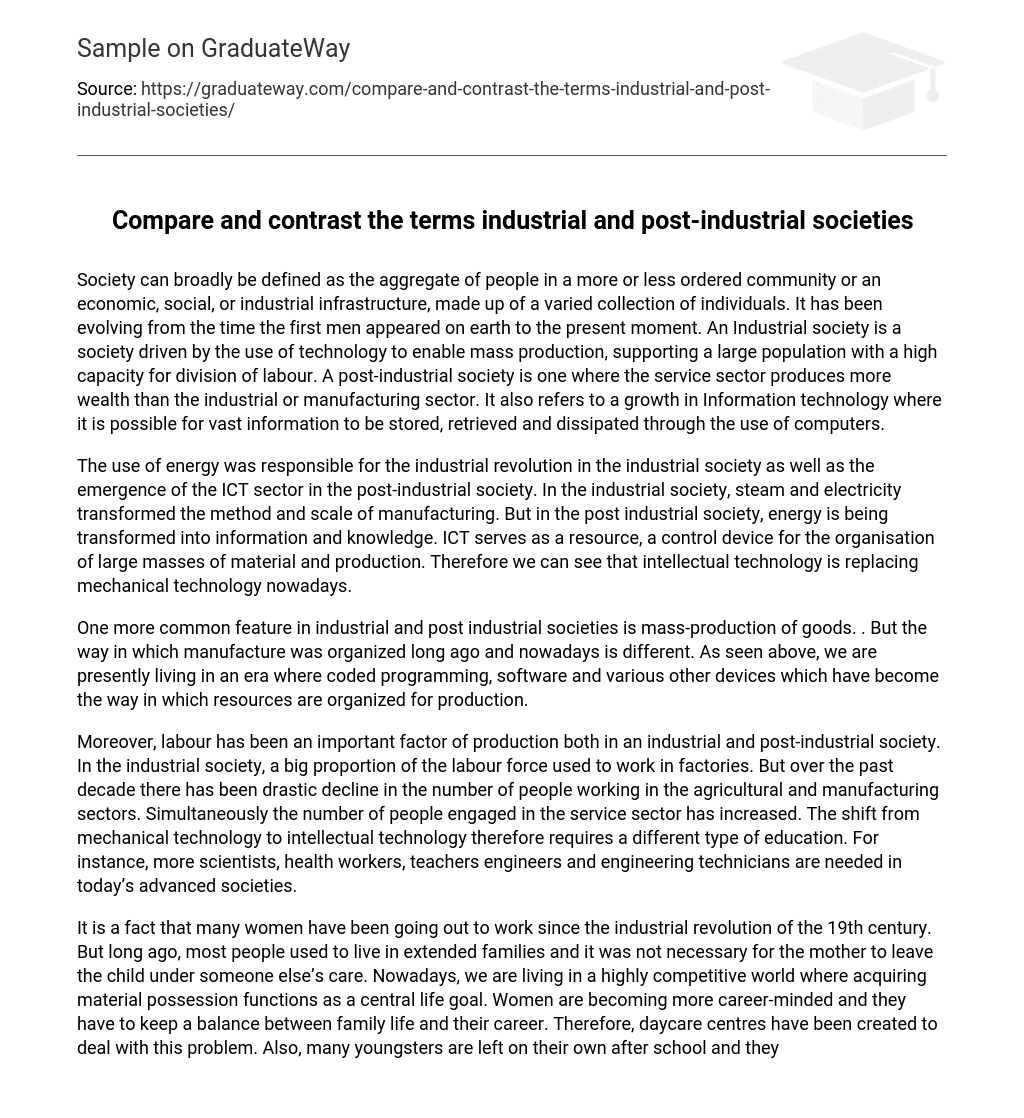Society can broadly be defined as the aggregate of people in a more or less ordered community or an economic, social, or industrial infrastructure, made up of a varied collection of individuals. It has been evolving from the time the first men appeared on earth to the present moment. An Industrial society is a society driven by the use of technology to enable mass production, supporting a large population with a high capacity for division of labour. A post-industrial society is one where the service sector produces more wealth than the industrial or manufacturing sector. It also refers to a growth in Information technology where it is possible for vast information to be stored, retrieved and dissipated through the use of computers.
The use of energy was responsible for the industrial revolution in the industrial society as well as the emergence of the ICT sector in the post-industrial society. In the industrial society, steam and electricity transformed the method and scale of manufacturing. But in the post industrial society, energy is being transformed into information and knowledge. ICT serves as a resource, a control device for the organisation of large masses of material and production. Therefore we can see that intellectual technology is replacing mechanical technology nowadays.
One more common feature in industrial and post industrial societies is mass-production of goods. . But the way in which manufacture was organized long ago and nowadays is different. As seen above, we are presently living in an era where coded programming, software and various other devices which have become the way in which resources are organized for production.
Moreover, labour has been an important factor of production both in an industrial and post-industrial society. In the industrial society, a big proportion of the labour force used to work in factories. But over the past decade there has been drastic decline in the number of people working in the agricultural and manufacturing sectors. Simultaneously the number of people engaged in the service sector has increased. The shift from mechanical technology to intellectual technology therefore requires a different type of education. For instance, more scientists, health workers, teachers engineers and engineering technicians are needed in today’s advanced societies.
It is a fact that many women have been going out to work since the industrial revolution of the 19th century. But long ago, most people used to live in extended families and it was not necessary for the mother to leave the child under someone else’s care. Nowadays, we are living in a highly competitive world where acquiring material possession functions as a central life goal. Women are becoming more career-minded and they have to keep a balance between family life and their career. Therefore, daycare centres have been created to deal with this problem. Also, many youngsters are left on their own after school and they are exposed to facilities like INTERNET and satellite programmes – a legacy of our post-industrial society. All these have given rise to a number of social problems since there is a decline in moral values.
On the whole, we have seen that the use of automated machines during the Industrial Revolution has had a great influence on the human race. It has led to mass-production which enabled international trade to take place. In our post-modern era, the Artificial Intelligence – has been added in the field of automation with all its qualities. This has helped in the economic development of many countries and it has improved the standard of living of people. But it is a fact that the use of ICT in our post-industrial society has brought complexities in social life. So we can see that progress comes at a price…





